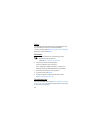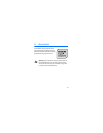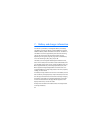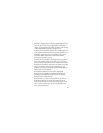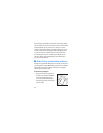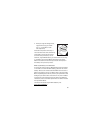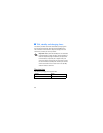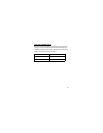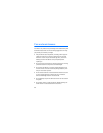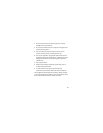53
Unplug the charger from the electrical plug and the device when
not in use. Do not leave a fully charged battery connected to a
charger, since overcharging may shorten its lifetime. If left unused,
a fully charged battery will lose its charge over time.
Always try to keep the battery between 15°C and 25°C (59°F and
77°F). Extreme temperatures reduce the capacity and lifetime of
the battery. A device with a hot or cold battery may not work
temporarily. Battery performance is particularly limited in
temperatures well below freezing.
Do not short-circuit the battery. Accidental short-circuiting can
occur when a metallic object such as a coin, clip, or pen causes
direct connection of the positive (+) and negative (-) terminals of
the battery. (These look like metal strips on the battery.) This might
happen, for example, when you carry a spare battery in your
pocket or purse. Short-circuiting the terminals may damage the
battery or the connecting object.
Do not dispose of batteries in a fire as they may explode.
Batteries may also explode if damaged. Dispose of batteries
according to local regulations. Please recycle when possible.
Do not dispose as household waste.
Do not dismantle, cut, open, crush, bend, deform, puncture, or
shred cells or batteries. In the event of a battery leak, do not
allow the liquid to come in contact with the skin or eyes. In the
event of such a leak, flush your skin or eyes immediately with
water, or seek medical help.






